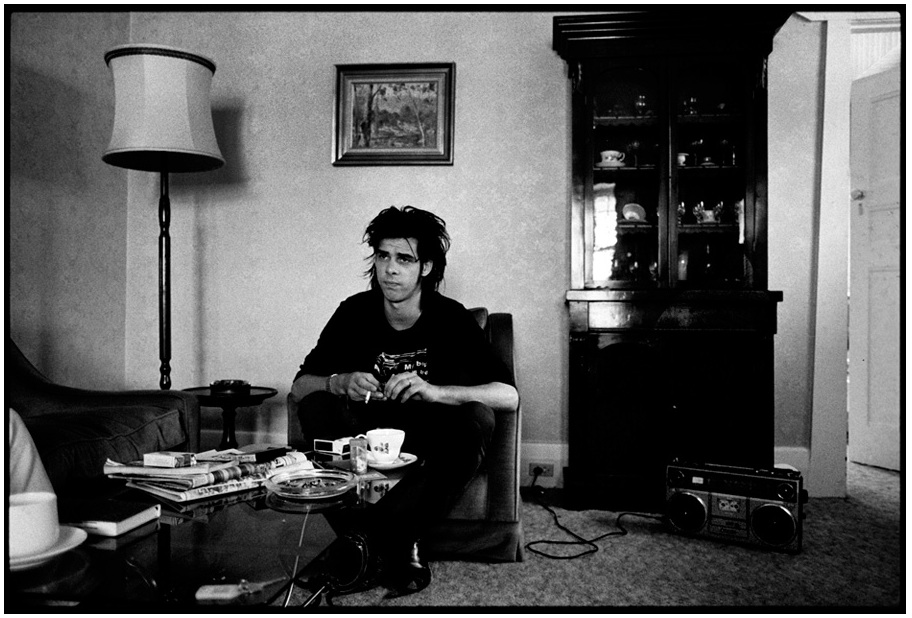3: Yes, but does it Pay?
|
The way I like to put it is that I am a recovering rock journalist, to borrow a phrase coined, I think, by my friend and fellow recovering rock journalist, Toby Creswell. It behoves me to declare my interests. These are the true confessions of a genuine rock pig. I was just a kid stranded the suburbs who went to art school but dropped-out in the mid-70s to start writing about music, inspired by incipient punk rock. I was just following my nose, as any decent journalist or historian, I would soon learn, should do. By the turn into the 80s, I was getting all the work I could handle with (opposition) rags like RAM, Rolling Stone and Roadrunner, the Big 3 ‘R’s of Oz rock writing. My copy, in retrospect, was dreadful. I had good insight, good ears, but my prose was stiff, partisan and didactic. Awful. Wild & Woolley published the first book I edited, Inner City Sound, in 1981; it was a sort of call to arms for independent, post-punk rock, and it seems to have survived as a classic of its type/era. I was taking my subject, Australian rock, seriously, and my role as cooler-than-thou critical enfant terrible very seriously. Thankfully I started to take writing seriously too. I had to. It was sink or swim. I had to work fast to mounting deadlines or I wouldn’t keep working. I am astonished to look back now at the amount of good clean copy I produced for only the highest-quality newspapers and rock and fashion magazines in the 80s despite an escalating drug habit. I lived the dream, sex and drugs and rock’n’roll, and I was getting on the cover of Rolling Stone and the Bulletin. |
|
The dilemma came at the start of the 90s, off drugs and trying, I can see now, to sort of go straight generally, or at least earn some money to help support a new and growing family. But I couldn’t balance increasingly powerful commercial imperatives with any sort of integrity. I was losing critical independence. I wanted to write about Miles Davis and Nick Cave and the GoBetweens, or Aboriginal country music, but at the Bulletin and the Australian they were sending me out to cover Tommy Emmanuel and Cats and James Blundell. So much for carte blanche! I had to back away from journalism. Journalism wasn’t going to allow me to pursue the sort of stories I was becoming more and more interested in, to explore unchartered waters. Too much media today is just the same old story over and over again albeit attached to a different marketing scam. It wasn’t till a little later that I realised I’d set myself on a mission to try and rescue the stories of the Australian underclasses generally that were being overlooked or disdained by the chardonnay set. I was just following my nose again. I needed to try something longer form, larger scale. When it finally dawned on me to write a book about Bon Scott, I couldn’t believe I still had the story all to myself; couldn’t believe that after more than a decade since his death in 1980, his biography was still sitting there untouched. In short, then, I published Highway to Hell through Pan-Macmillan in 1994, and whilst it might not do for me to talk up its quality, I can say, quantifiably, that if it’s not the most successful Australian rock book to date - never out of print and with local sales well in excess of 100,000 and still counting, and translated into five foreign language editions - it’s topped only by Billy Thorpe’s extremely colourised memoirs Sex and Thugs and Rock’n’Roll and Most People I Know Think That I’m Crazy, which of course passed their use-by date and went out of print years ago. Yet even as I largely traded journalism for writing books and television more than two decades back, and even as those books have been non-music based (Football Life, Golden Miles, The Wizard of Oz) as often as music-based (Stranded, Buried Country, History is Made at Night), I am still pegged, when I’m pegged at all, as a rock journalist. Perhaps if I’d chosen otherwise less lowbrow subjects than suburban petrolheads or bush footy clubs, or blackfellas howling hillbilly songs, I might have acquired more legitimacy. But then perhaps I am submitting, again, to all the same old pretensions, like the rock star who wants to act – to be an all-round entertainer, even a critic! But like most of us in recovery, I am trying to learn to love my disease, to shed the shame. So I just continue to struggle, lost somewhere between music, literature and academe. It’s not so unusual. All independent writers in this country struggle. |


